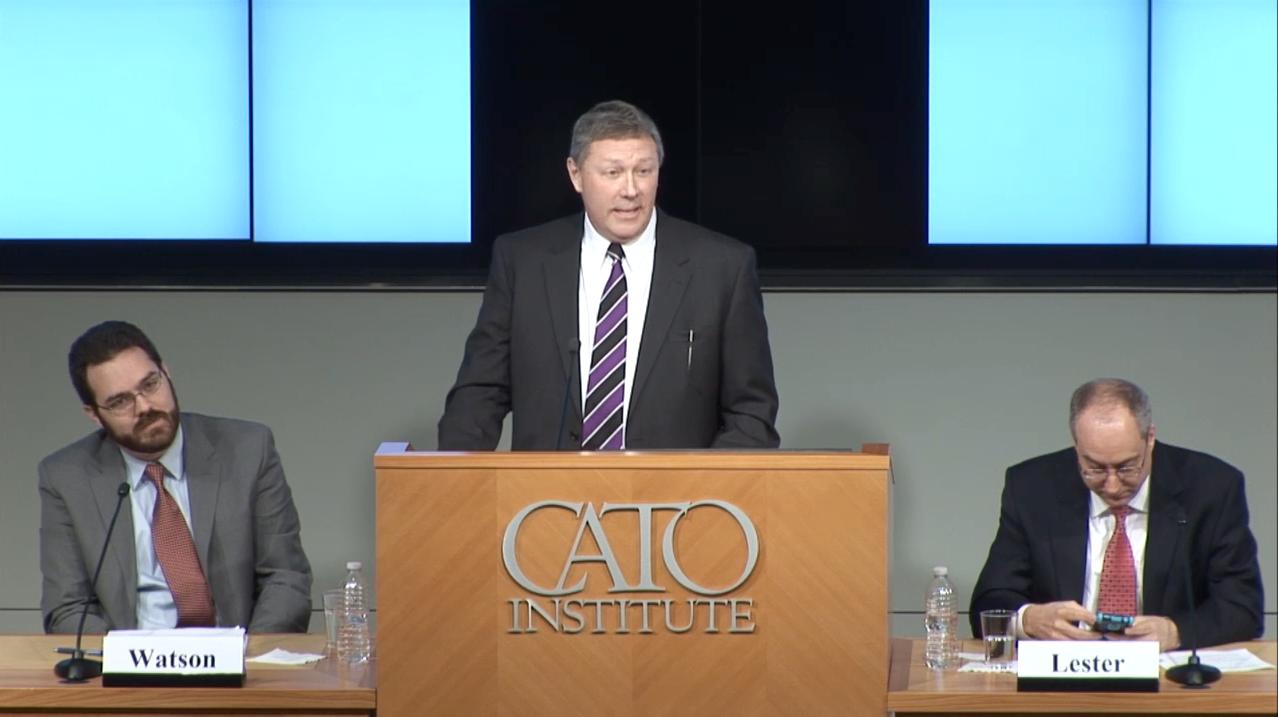 I had the privilege of speaking a couple of weeks ago at a Cato Institute briefing on whether it is wise or appropriate to include intellectual property protection in trade agreements, specifically in the Trans-Pacific Partnership (TPP), the major trade agreement that is currently in a pretty vital stage of negotiation. The name of the event was "Intellectual Property in the Trans-Pacific Partnership: National Interest or Corporate Handout?" It was kind of Bill Watson at Cato to invite me to participate, and you can see the video of the event on Cato's website here. You can also see my Powerpoint slide deck here.
I had the privilege of speaking a couple of weeks ago at a Cato Institute briefing on whether it is wise or appropriate to include intellectual property protection in trade agreements, specifically in the Trans-Pacific Partnership (TPP), the major trade agreement that is currently in a pretty vital stage of negotiation. The name of the event was "Intellectual Property in the Trans-Pacific Partnership: National Interest or Corporate Handout?" It was kind of Bill Watson at Cato to invite me to participate, and you can see the video of the event on Cato's website here. You can also see my Powerpoint slide deck here.
My role at the event was to speak from the perspective that intellectual property protections should be part of such trade agreements. I was in the definite minority, as both the other two panelists and the moderator are all skeptical of IP protection in general, and certainly don't think we should be using trade agreements as leverage to ask our trading partners to raise their IP protection standards. But I was happy to play that role.
It doesn't make sense for me to try to recap the entire event in a blog entry when you can watch the video. Let me suggest that you watch all the way through the Q&A at the end, because we get into some interesting questions about IP and trade, and because a couple of the questions gave me opportunities to go on a couple of rants, especially one about the Founders view of IP as a natural property right as the fruit of one's labor.
My general contention was that, since almost 60% of U.S. exports are from the IP intensive industries, of course we should make IP protection part of our trade agreements, and in fact it would be malpractice to not do so. My presentation was based on real numbers and data about the economic importance of IP to the U.S. economy. I also argued that the only appropriate practice is for U.S.T.R. to be asking for trade standards that are equivalent to existing U.S. law standards, since what other basis could there possibly be for U.S.T.R.? What else do we want them basing their demands on? Someone's blog entry or op/ed? No, the only rational basis for trade negotiations is existing U.S. law. If you don't like U.S. law, get it changed, but don't ask U.S.T.R. to start determining for themselves what IP protections should be.
I think it's fair to say that Margot Kaminiski is what I refer to as an IP skeptic--either the entire concept of IP itself is off-base, or the protections currently enshrined in law are far in excess of what would be of maximum benefit in the economy. And I think it's probably fair to say that Bill Watson thinks IP shouldn't be in trade agreements because IP law really is irrelevant to trade law. What Bill's specific beliefs are on IP, I couldn't say.
I also pushed back on the setup of the event. I rejected the idea that strong intellectual property protection is a "handout" to a "narrow set of industries." I argued that 60% of exports is not a narrow set of industries, but rather the basis of the U.S. economy. And expecting our trading partners to respect our property rights is simply extending the rule of law, not corporate welfare. If you don't believe in IP, you probably see it as a form of crony capitalism or corporate welfare. But protecting property rights is not even a favor, much less a handout--it's just the basics of what we expect from government.
And I also argued that, if a particular trade policy increases the ability of a sector of the U.S. economy to create wealth and jobs, isn't that also good for the overall economy? It's a bizarre form of zero-sum thinking to think that helping the content industries generate wealth and create jobs is not good for the overall U.S. economy. This is just one example of how, when it comes to IP, libertarians have really departed from their usual approach to issues, which will be the subject of forthcoming short paper I'm writing.
Hope you enjoy the video, and interested in any thoughtful comments.

